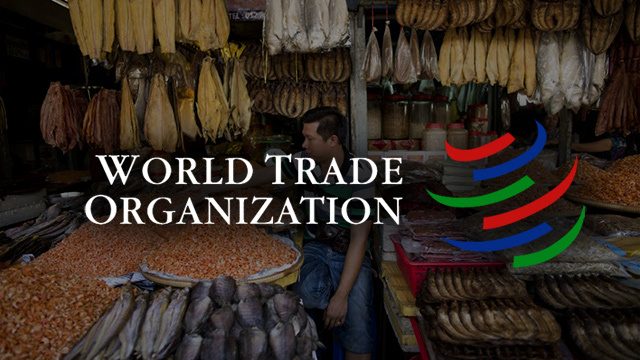SUMMARY
This is AI generated summarization, which may have errors. For context, always refer to the full article.

BUENOS AIRES, Argentina – Under fire from the United States, wracked by disagreements over China and unable to kickstart stalled trade talks, the World Trade Organization meets under a cloud in Argentina from Sunday, December 10.
The Buenos Aires meeting will be the first in the era of US President Donald Trump, who has pummeled the 164-member body relentlessly since taking office, even describing it as a “disaster.”
The Trump administration had made the WTO a preferred target of its “America First” policy, threatening to pull America out of the trade organization it says is hampering its ability to compete.
Expectations of any kind of a breakthrough at the Buenos Aires meeting are low.
“There are several subjects on the table. On any of them, we may have some convergences on certain topics, or not, I don’t know,” was the underwhelming assessment of WTO Director General Roberto Azevedo at a briefing at the end of November.
Argentina’s Susana Malcorra, who will preside over December 10 to 13 meeting, was more upbeat recently, saying a deal was likely to end harmful fisheries subsidies, keenly of interest to developing countries.
She was also positives about the prospects of a EU-Mercosur (Argentina, Brazil, Uruguay and Paraguay) trade deal finally coming to fruition 18 years after talks first began.
“In a context where global trade has been called into question, it is fundamental that two such considerable markets announce they are ready” to seal a deal, she told Agence France-Presse (AFP).
US blamed for holdups
EU Trade Commissioner Cecilia Malmstrom hinted on Tuesday, December 5 that talks between the two sides could continue into 2018, the key stumbling blocks being beef and the ethanol trade.
Washington has been blamed for blocking appointments of judges to the WTO’s dispute settlement system, saying it was ineffective and insisting on a more aggressive approach to defending its interests.
The dispute body arbitrates international rows over subsidies or tariffs, among other things playing an important role in the standoff between US and European plane-makers Boeing and Airbus.
“The appellate body will be down to 4 members from its regular seven-member contingent from the middle of next month,” lamented a Geneva trade official.
WTO critics say it has failed to shunt forward the so-called Doha round of trade talks, despite 15 years of effort, and point to the body’s apparent powerlessness in dealing with problems posed by China, which joined the WTO in 2001.
Beijing wants to be seen by the WTO as a “market economy” but the Europeans and the United States – for once on the same wavelength on trade issues – oppose any such recognition, a distinction which would entitle it to preferential economic treatment under WTO rules.
It is currently classed as a non-market economy, which allows the US and others to use a special recourse to levy anti-dumping duties against it if they decide that it is selling its goods – chiefly steel and aluminum – at unfairly low prices in other countries.
A European diplomat in Buenos Aires said protectionist US rhetoric may have motivational effects on negotiations between the EU and Mercosur.
As if to prove him right, the EU and Japan announced Friday that they have finalized a major trade agreement.– Rappler.com
Seller image from Shutterstock
Add a comment
How does this make you feel?
There are no comments yet. Add your comment to start the conversation.